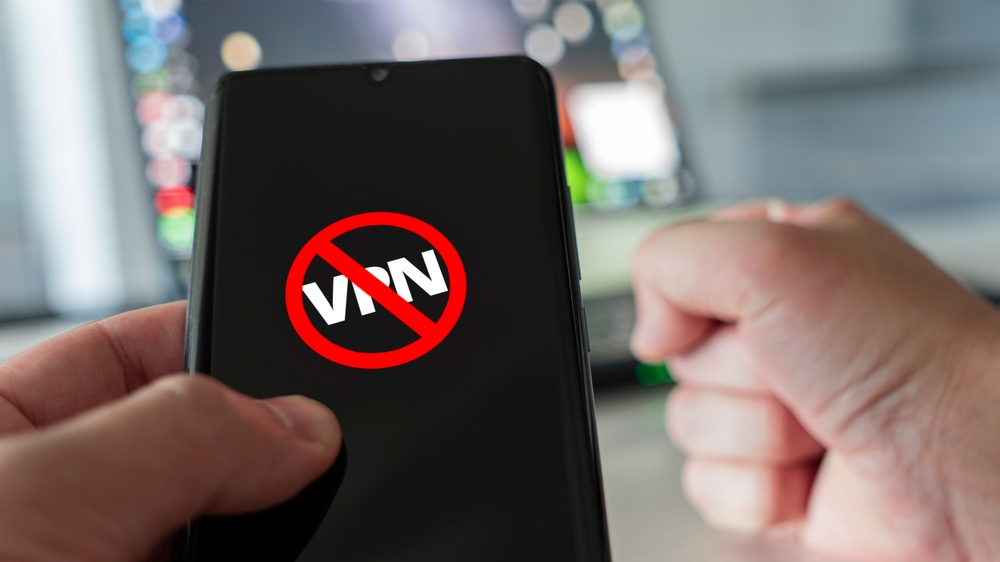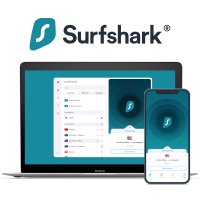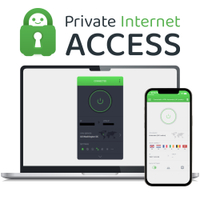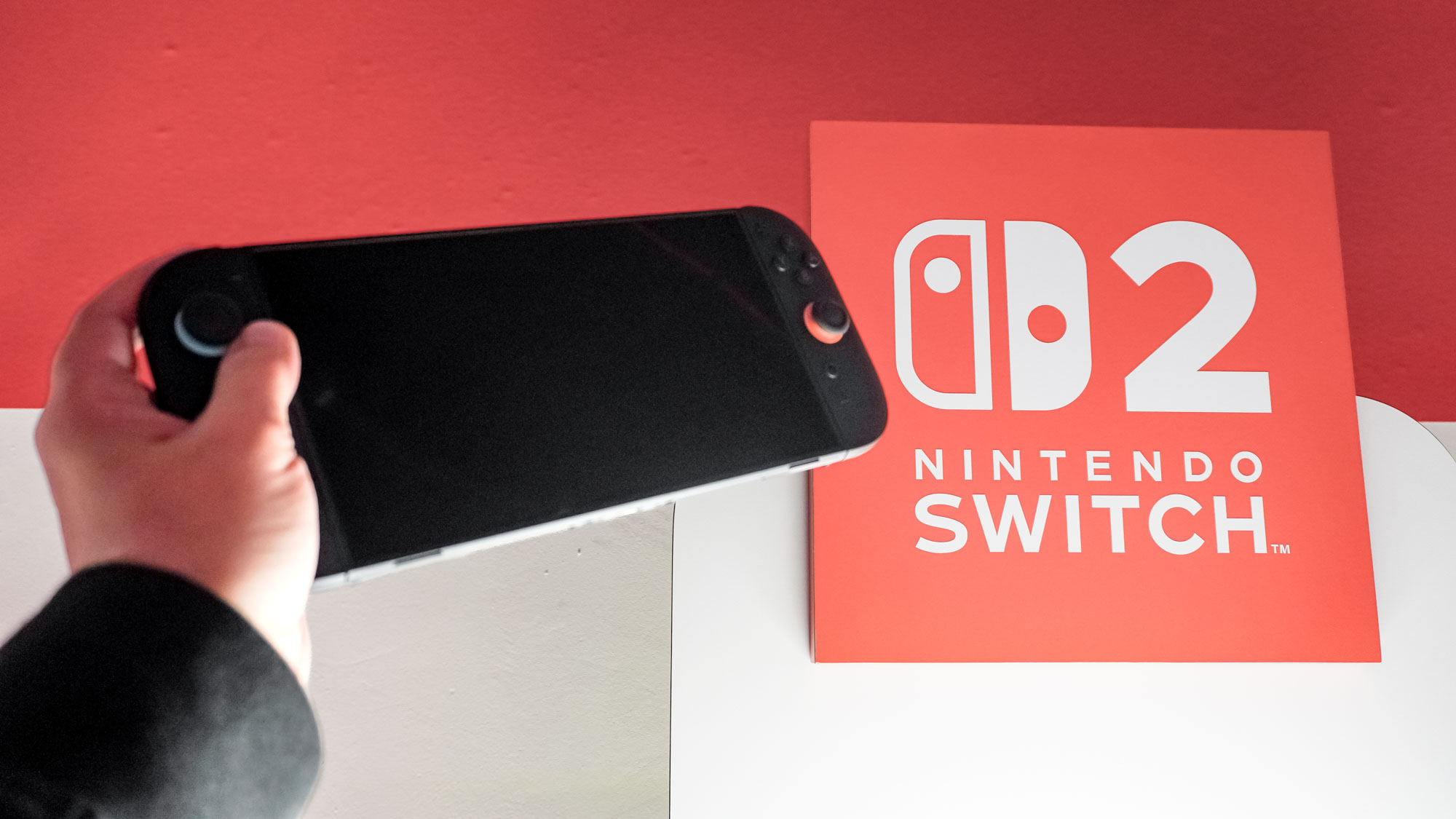8 countries with the strictest VPN laws
Plenty of countries restrict VPN usage – here are the worst offenders

The best VPN services are a great way to ensure privacy and security while browsing the internet. When using one, the traffic emanating from your IP cannot be traced back to you, providing you with an invisible cloak of anonymity. VPNs also come in handy for accessing geo-restricted content and international game sales, irrespective of your actual physical location.
However, there are always two sides of the coin. VPNs are also often used to hide illegal activities and share sensitive illegal information, which is why several countries have imposed strict laws governing the use of VPNs. In this article, we’ll explore why certain countries ban VPNs, how these bans are enforced, and the countries with the strictest VPN laws right now.
Why are VPNs banned in some countries?
Using VPNs is legal in many countries like the UK, USA, Canada, New Zealand, Australia, and so on. However, some countries prohibit VPNs to suppress dissenting views and control internet access. Here are a few other reasons why VPNs are banned:
Government censorship: Sometimes, the government doesn’t want its citizens to access certain content, social media platforms, or websites. VPNs can help bypass these restrictions, so the government bans them altogether.
National security concerns: Since VPNs can be used for anonymous and encrypted communication, governments often consider them a threat to national security and ban them to prevent terrorism.
Surveillance and control: VPNs make it difficult for the government to control and monitor online activities since they cannot trace activity back to the user. So, VPNs are often banned to have more control over citizen’s online communications and usage.
8 Countries with the strictest VPN laws
Here are the top 8 countries with the strictest VPN laws where they are restricted or illegal:
Sign up to get the BEST of Tom's Guide direct to your inbox.
Get instant access to breaking news, the hottest reviews, great deals and helpful tips.
1. North Korea
North Korea is anything but a free country in every sense of the term. It’s known for its restrictive VPN laws and strict internet regulations due to its reputation as the most repressive country in the world. The government monitors internet access and prohibits VPN use in the country.
However, the irony is that VPN restriction is probably not a major concern for the citizens in North Korea, as most of them don’t have internet access to begin with. If you're one of the lucky minority to have a computer, you’re limited to their national intranet called Kwangmyong.
2. Iraq
In Iraq, VPN services have been blocked for all since 2013. This is mainly done to prevent the spread of terrorism, as there were reports of ISIS hiring people through the Internet.
Plus, the government wants to curb the spread of extremist online content. Although Iraq’s censorship measures are not as strict as in China or North Korea (due to the lack of infrastructure), you can end up in jail for a year if you're found using a VPN for any reason.
3. China
The Chinese government has strict rules in place for using a VPN. However, it’s not officially illegal to use a VPN in China. The VPNs allowed in the country must follow the internet censorship and regulation system, often known as “The Great Firewall of China.”
The best VPN for China should be aligned and licensed with local regulations. Using banned VPNs in China will result in huge penalties, imprisonment, and even job loss.
It's worth noting that if you're heading to China for business or pleasure, you should sign up before you step on the plane. this is because that while a number of VPNs work in China, many of their websites are blocked, and their apps aren't likely to be found on your app store.
4. Russia
VPNs are legal in Russia, but only those that work under the government’s “legal framework.” In the Kremlin's eyes, the best Russia VPN should not provide access to blocked websites or content, and they must log user data and provide it to the government for inspection. In ours, however, things couldn't be farther from the truth.
Many popular VPNs like NordVPN, ExpressVPN, IPVanish, KeepSolid VPN Unlimited, Hola VPN, and Speedify VPN are banned in Russia. Therefore, our advice is the same for those visiting Russia as it is to those heading China: if you plan on using a VPN, sign up and install your apps before landing in the country.
5. Belarus
Belarus strictly prohibits the use of VPNs, making them completely illegal. Belarus has also blocked Tor Browser, a network that allows users to access the Dark Web anonymously.
The country has also imposed restrictions on messaging apps like Signal and Telegram to restrict free speech, suppress dissent, and prevent the spreading of anti-governmental data. Using a VPN in Belarus might result in a hefty fine, but if you're dead set on using one, get up and running before you step foot in the country.
6. UAE
Using a UAE VPN is legal; however, the government imposes strict regulations on them, including strict policies to prevent or block "offensive" content like pornography and to prevent the use of VoIP services like WhatsApp, Skype, and Facebook. The penalty for using a VPN for these purposes is either a fine of a maximum of roughly $550,000, or temporary imprisonment.
However, it's worth noting that we can't find any instances of individuals being prosecuted for using a VPN to access blocked content, websites, or geo-restricted Netflix libraries. It appears that the UAE government is more interested in those engaged in terrorism, and those selling bulk VoIP access to evade the state monopoly on these apps.
7. Egypt
Although you can use the best Egypt VPNs as they are legal, it’s advised to be cautious and use tools like obfuscated servers, a kill switch, and double VPN features for added protection. The government also prohibits VoIP services like Facebook Messenger, FaceTime, Skype, WhatsApp, and Viber for security concerns, along with censoring online activity and restricting access to inappropriate content.
8. Turkey
As is the case with the UAE and Egypt, the Turkish government heavily restricts usage of the best Turkey VPN. In 2016, Turkey blocked around 10 VPN providers and the Tor network, alongside several news platforms, websites, and even social media platforms like YouTube, Facebook, Wikipedia, and Twitter, to fight terrorism and protect national security.
Other countries where VPNs are illegal or are under heavy restrictions include Turkmenistan, Uganda, Oman, Iran, and Myanmar.
How to bypass VPN restrictions
The best plan for you if you reside in any one of the aforementioned countries or plan to travel there is to use one of the best VPN providers. This will allow you to easily access local banking sites back home, along with important communication platforms like WhatsApp, Skype, Facebook Messenger, and more.
Most importantly, these VPNs don't give in to a government's surveillance and hand over user data to them, thereby still staying true to their number one commitment of anonymizing you on the internet and keeping you safe from the prying eyes of hackers, ISPs, and government authorities. Here are the top 3 VPNs you can get right now:
1. ExpressVPN – An excellent premium all-rounder
ExpressVPN is our #1 VPN overall, with servers all around the world. No matter where you’re traveling, you'll be protected by its class-leading security and privacy features, including obfuscated servers and an audited no-logs policy.
With detailed guides, friendly 24/7 support, and a simple interface, ExpressVPN is one of the most beginner-friendly VPNs. It's also great for streaming, unblocking every platform we've tested it with. Try it risk-free with a 30-day money-back guarantee, and get 3 months free on the 12-month plan.
2. Surfshark – Great performance from budget provider
Surfshark is a superb VPN for unrestricted access around the globe, especially if you're traveling with large groups, thanks to unlimited simultaneous connections and compatibility with all types of devices. It’s also the fastest provider we’ve tested, edging past rivals ExpressVPN and PIA.
With servers in a huge number of countries, fantastic unblocking abilities, and nifty privacy features, Surfshark provides excellent value for money and is the best budget VPN. It also has a 30-day money-back guarantee, so you can try it out and see if it’s for you.
3. Private Internet Access – The best Travel VPN today
Private Internet Access is a popular name in the industry thanks to its verified no-logs policy, unlimited simultaneous connections, massive server count, and dedicated streaming servers.
With tons of privacy add-ons, PIA excels on the security front. Also, it just undercuts Surfshark as one of the the cheapest providers. Be sure to make the most of its 30-day money-back guarantee to see how it compares with Express and Surfshark.
Bottom line
The legality of using a VPN varies depending on the country, and although most of us use VPNs for privacy and security purposes, there are potential consequences and risks associated with their legality.
All in all, we strongly recommend you use government-compliant VPNs to avoid fines and other penalties, but if you're keen on getting unrestricted access to the internet, using a reliable VPN should be your go-to choice.

Krishi is a VPN writer covering buying guides, how-to's, and other cybersecurity content here at Tom's Guide. His expertise lies in reviewing products and software, from VPNs, online browsers, and antivirus solutions to smartphones and laptops. As a tech fanatic, Krishi also loves writing about the latest happenings in the world of cybersecurity, AI, and software.



